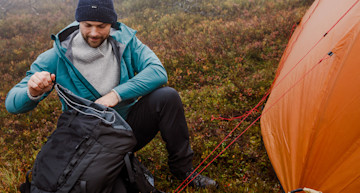
Pack right for your hike
The size of the backpack and what you pack depends on whether it's a day trip or a multi-day hike with an overnight stay. No matter what type of hike, it's important to tailor your packing to the weather, terrain, your experience, and any personal needs. Always pack smart and safe for your unique adventure.
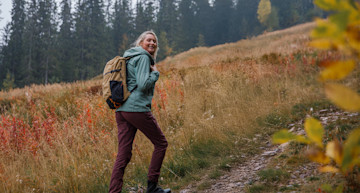
Day trip
For day trips, a 20 to 30-liter backpack should suffice. This lets you pack essentials like water, food, clothing, and a first aid kit. Bring a hot meal in a thermos or a hearty sandwich to avoid carrying bulky cooking gear.
- Backpack 20–30 liters
- Water bottle or hydration system
- Food
- Extra clothing suited for the weather
- First aid kit
- Map, compass or GPS
Other: rain cover for backpack, knife or multi-tool
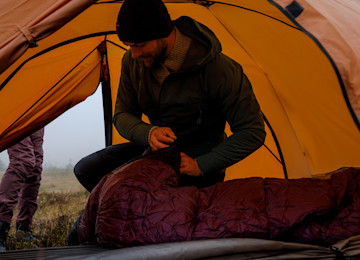
Tent overnight stay
Planning and packing more is needed for multi-day hikes with tents than for day trips. Start with the day trip list and add these items.
- Backpack: 50–70 liters
- Tent
- Sleeping bag and pad
- Cooking gear: stove, fuel, lighter, plate, cutlery, and mug
- Headlamp and spare batteries
- Toiletries
Other: water purification if you can't access clean water otherwise.
Tip! Earplugs can be handy when sleeping outdoors. Nature can be louder than it seems!
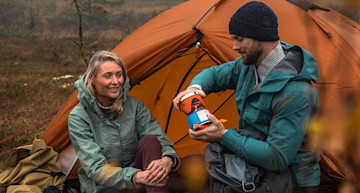
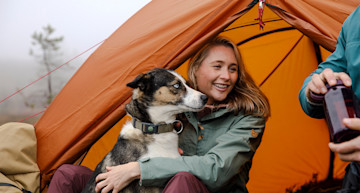
Cabin overnight stay
Cabin stays during a hike are comfy and convenient. No need to carry a tent, and some cabins offer electricity and water. Check what's available in your specific cabin and what you need to bring beforehand. Start with the day trip list and add these items.
- Backpack: 40–60 liters
- Sleeping bag or sheets (verify what is required for your cabin).
- Cooking gear: Partial or full cooking can be done in the cabin (check your cabin specifics).
- Headlamp and spare batteries
- Toiletries
Other: possible water purification, matches, candles, and slippers
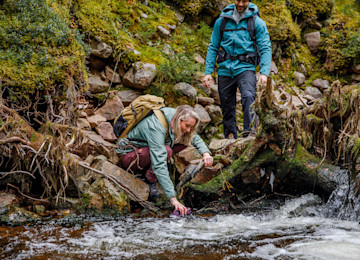
Pack properly
Organize your backpack smartly for comfort and ease of access on the trail.
- Bottom: large items not used during the hike (sleeping bag, pad, extra clothes)
- Against your back: heavy items like water and food
- Top: lightweight, fragile items and essentials (jacket, first aid kit)
- Side/shoulder strap pockets: water bottle and essentials you need handy
- Hip belt pockets: energy bars, sunglasses, phone, or camera
- On the outside: keep it minimal (hiking poles, ice axe, foam pad)
Tip! Earplugs can be handy when sleeping outdoors. Nature can be louder than it seems!